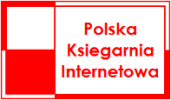Kategorie
-
 Szybka wysyłka
Szybka wysyłka
- Promocje!
- Albumy
- Artykuly papiernicze
- Audiobooki
- Bajka i baśń
- Biografie
- Dla dzieci i młodzieży
- Encyklopedie i leksykony
- Ezoteryka
- Fantastyka
- Filmy
- Gry planszowe
- Historyczne
- Horror, literatura grozy
- Jan Paweł II
- Kalendarze
- Komiksy
- Kryminały
- Książki kucharskie i diety
- Książki po angielsku
- Legendy, podania, mity
- Literatura erotyczna
- Literatura faktu
- Muzyka
- Nauka i Naukowcy
- Nauki Przyrodnicze
- Naukowe i popularno-naukowe
- Podręczniki szkolne
- Poradniki
- Puzzle
- Religia i wiara
- Romanse
- Science-fiction
- Sensacyjne i thrillery
- Słowniki
- Sport
- Sztuka i fotografia
- Technika
- Wojskowość i wojny
- Zabawki
- Zdrowie i uroda
Newsletter
Subskrybuj
To pole jest wymagane
To pole jest wymagane
Czekaj...
- Home /
- Examining Reading
Zapraszamy do zakupu tego produktu!









